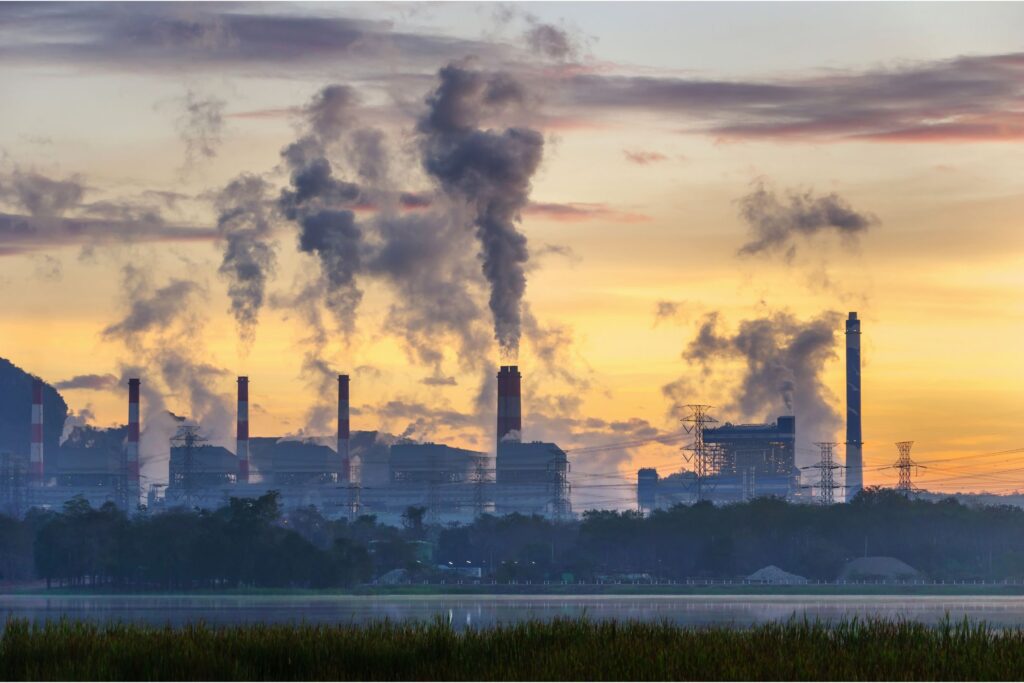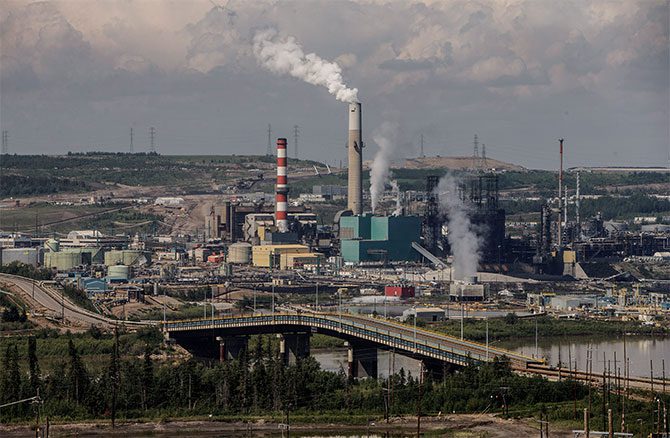ABOVE GROUND, ASIAN’S PEOPLES MOVEMENT FOR DEBT AND DEVELOPMENT, CLIMATE ACTION NETWORK INTERNATIONAL, ENVIRONMENTAL DEFENCE, GREENPEACE CANADA, INTERNATIONAL INSTITUTE FOR SUSTAINABLE DEVELOPMENT, OIL CHANGE INTERNATIONAL
At COP26 Canada, US, UK, and 21 other countries and institutions join together to end overseas oil, gas, and coal support next year
Glasgow — Today at COP26, Canada, US, Mali, UK, and 20 other countries and institutions from both developed and developing countries launched a joint statement committing to end direct international public finance for unabated coal, oil and gas by the end of 2022 and prioritize clean energy finance. If honored, this commitment will likely unseat Canada as the worst-ranking in the G20 for international public financing to the fossil fuel sector.
After a wave of commitments to end international coal finance this year, this is the first international political commitment that also addresses public finance for oil and gas. If implemented effectively this initiative could directly shift more than CAD 18.6 billion (USD 15 billion) a year of preferential, government-backed support out of fossil fuels and into clean energy — and much more if initial signatories are successful in convincing their peers to join.
Almost all of Canada’s public finance for oil and gas comes from federal crown corporation Export Development Canada (EDC). Some of this is domestic support not clearly covered by today’s commitment though this finance is closely related and housed within many of the same programs at EDC. Due to a lack of transparency it is not fully possible to separate out this domestic and international support. This means while EDC’s overall fossil fuel support was CAD 13.6 billion a year 2018-2020, the amount that flowed internationally and therefore is fully covered by this commitment is somewhere between CAD 2 billion to 9 billion a year for 2018-2020.
The largest ‘recipient’ countries for Canada’s international oil and gas support 2018-2020 were the United States, Mexico, Australia, and Colombia respectively. Companies receiving finance include both Canadian companies involved in projects abroad as well as international companies doing business with Canadian entities — with Enbridge, Parex Resources, ConocoPhillips, and Australia Pacific LNG among the top recipients.
Shifting public finance for energy out of all fossil fuels and into clean energy is an urgent task. The International Energy Agency says that to limit global warming to 1.5°C, 2021 needs to mark the end of investments in not just coal, but also new oil and gas supply. Yet, new research by Oil Change International and Friends of the Earth US shows that between 2018 and 2020, G20 governments and Multilateral Development Banks (MDBs) still spent at least $188 billion on fossil fuels. This was 2.5 times more than G20 support for renewable energy, which averaged $26 billion per year. Canada ranked far worse than the global average, providing 14.5 times more support for fossil fuels than renewable energy. Beyond climate impacts, EDC’s oil and gas activities at home and abroad have been linked to human rights abuses, from fracking in Colombia to the CoastalGasLink pipeline in British Columbia.
Canada’s commitment comes after over 100 organisations called on the federal government to end Export Development Canada’s financing of oil and gas, and fossil fuel subsidies became a key issue during last month’s federal election period. A recent Abacus Data poll also found 62% of Canadians want the Canadian government to establish a plan to stop taxpayer subsidies going to the oil and gas industry.
The combination of big polluters and low-income countries signing the statement is a rarity, and challenges the assumption that developing country signatories want or need investments in fossil fuels to achieve their development objectives. Alongside fulfilling their stated goal of prioritizing support for renewable energy, campaigners remind signatories that the ability of this initiative to support a just and 1.5°C aligned global energy transition will also hinge on ending domestic fossil fuel finance and subsidies, avoiding loopholes allowing for a dash for gas, acting on global debt relief, increasing grant-based climate finance, and securing more peers to join the commitment.
Quotes:
Julia Levin, Senior Climate and Energy Program Manager at Environmental Defence Canada
“We applaud Canada for showing much-needed climate leadership today by joining countries promising to shift public finance away from fossil fuels before the end of 2022. As the worst provider of public finance in the G20, taking this important step is critical for Canada to meet its emissions target. Eliminating public financing for fossil fuels will free up billions of dollars to support climate solutions and set Canada up to thrive as the world moves beyond oil and gas.”
Bronwen Tucker, Public Finance Campaign Manager at Oil Change International
“This is one of the only Canadian climate commitments to ever concretely address the oil and gas sector. It means Canada will likely no longer be the largest international backer of fossil fuels, that we will face lower risk of economic shocks from our overexposure to this sunsetting industry and that this influential financial support can be redirected to just transition and renewable energy globally instead. Today’s announcement is a credit to the climate movement and Indigenous land defenders that have been pushing Trudeau to take real climate action since the day he took office. But the federal government should also hear loud and clear that they must keep their election promises and extend this commitment to Export Development Canada’s closely related domestic finance, end other domestic fossil fuel subsidies, and pass a Just Transition Act with robust support for impacted workers and communities.”
Eddy Pérez, International climate diplomacy manager || Directeur de la diplomatie climatique internationale, Climate Action Network – Réseau action climat Canada
EN: “Canada remains the G20 country most heavily subsidizing the fossil fuel industry and thus the destruction of our planet. By announcing the phase-out of international fossil fuel finance by 2022, Canada recognizes the calls from young people, communities, and Indigenous peoples urgently asking for a people-led transition. Transparency matters, and we now urge the Canadian government to release implementation details of this critical policy.”
FR: « Le Canada demeure le pays du G20 qui finance le plus fortement l’industrie fossile et donc la destruction de la planète. En annonçant l’élimination du financement international des combustibles fossiles en 2022, le Canada reconnaît les appels des jeunes, des communautés et des peuples autochtones qui demandent une transition immédiate qui répond aux besoins des gens. La transparence pour la suite, c’est crucial. Nous demandons maintenant au gouvernement canadien de publier les détails de la mise en œuvre de cette annonce.»
Karen Hamilton, director of the Canadian corporate accountability project Above Ground
“We welcome the news that Canada has joined the UK and others in calling for an end to international fossil fuel finance. To make good on this commitment, the Government of Canada must instruct its export bank, Export Development Canada, to immediately end the billions in support it provides for overseas oil and gas operations each year. Canada should then exceed the commitment by ending all public finance for domestic fossil fuel operations.”
Tasneem Essop, Executive Director, Climate Action Network International
“Shutting fossil fuels down is critical for tackling the climate crisis. This announcement is a step in the right direction but must be scaled up with more governments and public finance institutions committing to end finance for fossil fuels. This public money needs to be urgently redirected into a just energy transition that ensures clean universal energy access for communities in the global South and support for communities and coal, oil and gas workers without saddling countries with any further debt.”
Patrick Bonin, Climate and Energy Campaigner, Greenpeace Canada
FR: «Bonne nouvelle, mais le Canada doit aussi s’engager à cesser de subventionner les combustibles fossiles en territoire canadien, sinon il continuera à alimenter la crise climatique alors que les communautés, particulièrement les plus vulnérables, sont déjà mise à mal par l’exploitation et l’extraction, en plus de subir l’augmentation des évènements extrêmes comme les feux de forêt, les inondations et les canicules meurtrières. Au lieu de continuer à financer les hydrocarbures le Canada devrait financer les solutions et aider les pays en développement, les communautés et les travailleurs.»
EN: “Good news, but Canada must also end its support for fossil fuels at home, or else it will continue to exacerbate the climate crisis. Communities, especially the most vulnerable, that are already impacted by extraction are now facing natural disasters like forest fires, floods, and heatwaves as well. Instead of continuing to fund oil and gas Canada must fund climate solutions that support developing countries, communities, and workers.”
Richard Florizone, President and CEO, International Institute for Sustainable Development (IISD)
“Today, Canada has taken a critical and historic step in joining other countries who are serious about shifting public finance away from fossil fuels. Canada has the opportunity to show leadership by rapidly scaling up public and private investment in the clean energy transition so that workers and communities here and around the globe can thrive in a low-carbon future. We applaud today’s commitment by the federal government, and encourage them to focus on both robust implementation and increased ambition.”
Lidy Nacpil, Asian’s Peoples Movement for Debt and Development
“We have been calling for an end to public financing of fossil fuels for so long, governments should have responded earlier. The world has no more space or time left to accommodate the expansion of fossil fuel energy. Instead governments must act immediately and decisively for a swift and just transition to 100% renewable and democratic energy systems. There should be no exceptions, no reliance on unproven and unreliable carbon capture and storage technologies that hide the lack of ambition and justify some level of continued GHG emissions. Governments must also compel the private sector to stop funding new fossil fuel projects. We call on all countries, public financial institutions, and private financiers to commit and disclose concrete plans to end all support and financing, direct and indirect, for all fossil fuels — coal, gas and oil. Anything less will not be enough to limit global temperature rise to 1.5°C.”
Notes:
- The joint statement will be launched at the UK pavilion at 10.30 GMT 4 November 2021. The launch event can be followed here: https://www.youtube.com/channel/UCpq-q7dcyzAc8Mi99UXegwg.
- The countries and the institutions that have signed the joint statement include: Agence Française de Développement (AFD), Albania, Canada, Costa Rica, Denmark, Banco de Desenvolvimento de Minas Gerais (BDMG), The East African Development Bank (EADB), Ethiopia, Fiji, Finland, Financierings-Maatschappij voor Ontwikkelingslanden N.V. (FMO), Mali, Marshall Islands, New Zealand, Moldova, Portugal, Slovenia, South Sudan, Switzerland, the European Investment Bank, The Gambia, The United Kingdom, The United States and Zambia.
- The estimate of a direct USD 15 billion shift is based on annual average public finance for fossil fuels from the participating countries and institutions from 2016-2020. Data for AFD, Canada, EIB, the United Kingdom and the United States are from Oil Change International’s Shift the Subsidies Database. Data for Denmark, Finland and Sweden is taken directly from government reporting. No data was available for other donor signatories.
- “Past Last Call” is OCI and Friends of the Earth US’s latest briefing analyzing G20 public finance figures and trends. It was covered by Canadian Press here and shows that between 2018 and 2020 G20 governments and public finance institutions provided at least USD 188 billion in public finance for fossil fuels.
- Further background on Export Development Canada’s climate commitments can be found here, and on their overall operations here.
- In September 2021, 200+ CSOs launched a statement calling on world leaders to end public finance for fossil fuels in 2021 and launch a joint commitment to do so at COP26. Meanwhile, in June 2021, 100+ Economists called on the G7 to put an end to not only coal finance, but also oil and gas finance in 2021.
- A legal opinion by Professor Jorge E Viñuales from the University of Cambridge and Barrister Kate Cook of Matrix Chambers argues that governments and public finance institutions that continue to finance fossil fuel infrastructure are potentially at risk of climate litigation.
- The joint statement unites some of the largest historic providers of public finance for fossil fuels — Canada, the United States, the UK and the European Investment Bank (EIB). However, other large fossil fuel financiers have yet to join them. Laggards include Japan (USD $10.9 bn/yr), Korea (USD $10.6 bn/yr), and China (USD $7.6 bn/yr), which are the largest providers of international public fossil fuel finance in the G20 and together account for 46% of G20 and MDB finance for fossil fuels. Italy (USD $2.8 bn/yr) and Spain (USD $1.9 bn/yr), some of the biggest EU fossil fuel financiers, are also missing.
- A report released yesterday by Oil Change International and Environmental Defence Canada found that the climate plans of Canadian oil and gas producers rate even worse than most global majors.
Contacts:
Alex Ross, Senior Communications Coordinator, Environmental Defence aross@environmentaldefence.ca
Bronwen Tucker, Public Finance Campaign Co-Manager, bronwen@priceofoil.org
In Glasgow / available early EU time: Laurie van der Burg, Public Finance Campaign Co-Manager, laurie@priceofoil.org
Vicky Coo, Communications lead, Climate Action Network – Réseau action climat Canada, comms@climateactionnetwork.ca






